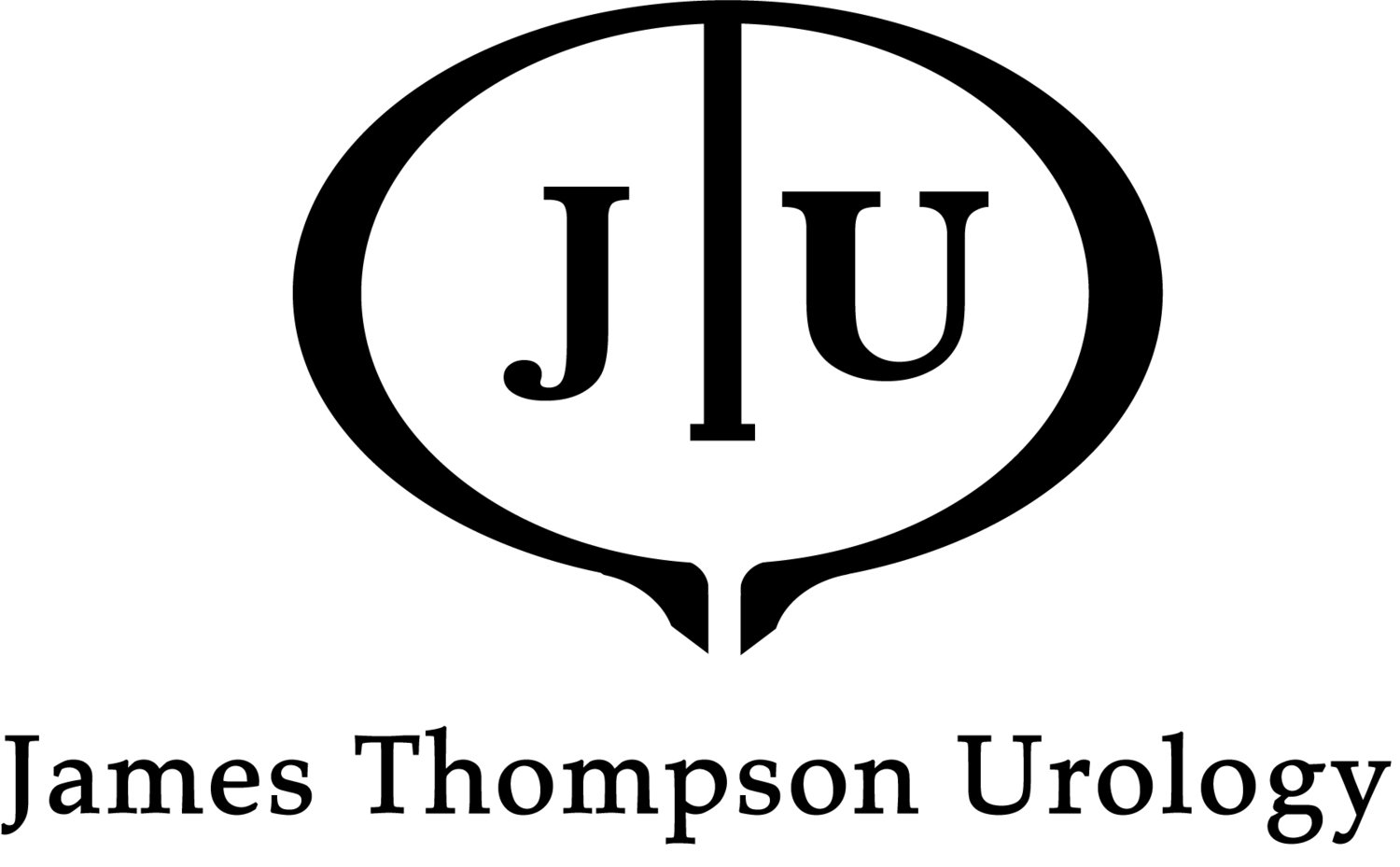Dr James Thompson is an experienced robotic, laparoscopic, endoscopic and open urological surgeon. He has sub-specialty training in (and passion for) the treatment of prostate, bladder and kidney cancer using the latest robotic surgery techniques and for high-impact cancer research that has the ability to immediately improve quality of life and cancer cure rates for the community.
Research credentials
Dr James Thompson is a Senior Research Fellow at the Garvan Institute, a Urological Surgeon at St Vincents Clinic and St George Hospitals and a Senior Lecturer at the University of New South Wales. He has a busy clinical practice and is involved in a number of clinical trials in prostate, bladder and kidney cancer. His research interest is predominantly on novel imaging techniques and biomarkers for diagnosis and risk stratification of cancer, novel robotic surgical techniques, focal ablation therapy and active surveillance for cancer.
James graduated with first class honours from medical school at University of New South Wales and undertook accredited advanced training in Urological Surgery through the Royal Australasian College of Surgeons (RACS) and Urological Society of Australia and New Zealand (USANZ). He then undertook an IMGSS fellowship in robotic cancer surgery at the largest pelvic cancer centre in the UK, University College London Hospital, as a senior robotic fellow. He was then given the honour of being the first Australasian ever appointed as a consultant robotic cancer surgeon at UCLH.
He completed his PhD in novel imaging/ biomarker techniques, robotic learning curves and active surveillance outcomes in prostate cancer in 2017, at University of New South Wales. He returned from London following being recruited as a Staff Specialist in Urology and Uro-oncology at St George Hospital in 2018 and also at St Vincents Clinic in 2018.
His current research focus continues to be novel imaging (MRI and PSMA PET) and biomarkers (genetic, epigenetic and exosomal) for the diagnosis and risk stratification of cancer, novel robotic surgical techniques in cancer surgery to improve cancer and functional outcomes, and active surveillance to reduce over-treatment of cancer. His research is focussed on prostate, bladder and to a lesser extent kidney cancer.
He has co-authored over 40 publications in peer-reviewed journals, is a regular reviewer for international prestigious urology journals, gives regular invited lectures and research presentations to local and international meetings and lectures plus supervises medical students at the University of New South Wales. He supervises PhD and Masters research fellows at the Garvan Institute and St George Medical Research Unit, as well as urological trainees and junior doctors. He chairs the Uro-oncology research collaboration meeting at St George Hospital.
In terms of collaborations, he is an executive committee member of the Australian Prostate Cancer Research Centre (APCRC) - NSW. He is an active member of the Australasian ANZUP research committee for bladder and prostate cancer. He is an active member of USANZ, the American Urological Association (AUA), European Association of Urology (EAU) and the EAU Robotic Urology Section (ERUS).
Chief Investigator or Site-Investigator on current trials
Co-Primary Investigator on the world-first PRIMARY Trial: prospective evaluation of the accuracy of Ga68 PSMA-PET-CT in combination with multi-parametric MRI for the detection of prostate cancer prior to diagnostic biopsy, in a screening population (2018 – present).
Co-Primary Investigator on the MRIAS study: prospective cohort study of MRI in Active Surveillance for prostate ca (2013 – present).
Co-Primary Investigator on the PIAS study: prospective cohort study assessing the accuracy of 68-Ga PSMA-PET CT in Active Surveillance for prostate ca (2020-present).
Co-Investigator on the PRIMARY 2 trial: multicentre prospective randomised phase 3 trial assessing the accuracy of Ga68 PSMA-PET-CT in men with PIRADS 2-3 on multi-parametric MRI for the detection of prostate cancer prior to diagnostic biopsy for abnormal PSA or DRE (2021 – present).
Co-investigator on the MAGNIFI study: prospective cross-sectional study of ferro-magnetic Combidex MRI vs Ga68 PSMA-PET CT for pre-operative nodal staging compared to robotic ePLND (2016 – present).
Co-primary Investigator on the Exosome Study: Prospective phase 1 discovery and phase 2 validation studies assessing the accuracy of exocystoplasmic vesicle-derived micro RNA (miRNA) gene panels from blood and urine for the prediction of prostate and bladder cancer diagnosis, treatment response and prognosis.
Associate Investigator on the DETECT study: prospective cross-sectional study of 99Tc-labelled PSMA guided PLND during RARP (2016 – present).
Chief Investigator on the MIBC Study: Multi-centre Evaluation of novel MRI Imaging before Cystoscopy for detection of Muscle-Invasive Bladder Cancer (pilot feasibility study in development, due to commence 2020).
Site Investigator (Urology Lead) on the CA209-9UT phase 2 multi-centre Global Randomised Controlled Trial of Nivolumab (Opdivo) novel PD1-receptor antibody +\- IDO1 inhibitor in the management of high-risk non-muscle invasive bladder cancer unresponsive to BCG (2021 - present).
Site Investigator (Urology Lead) on the THOR-2 Phase 3 multi-centre Global Randomised Controlled Trial of Erdafitinib novel FGFR-receptor antagonist in the management of post-BCG high-risk non-muscle invasive bladder cancer (2020 - present).
Site Investigator (Urology Lead) on the STING-agonist phase 2 international multicentre RCT of a novel immnunotherapy for post-BCG high risk non-muscle invasive bladder cancer (2020 - present).
Site-Investigator on multicentre iROC (intra-corporeal Robotic vs Open Cystectomy) randomised trial of open vs robotic radical cystectomy for bladder cancer, lead site UCLH (CI JD Kelly, Trial Identifier NCT03049410).
Site-Investigator on multicentre Trombone randomised trial of systemic therapy +/- robotic radical prostatectomy in men with oligo-metastatic prostate cancer, lead site UCLH in STAMPEDE (CI P Sooriakumaran, Trial Identifier ISRCTN15704862
Joint-Chief Investigator (with P Sooriakumaran) on Multicentre RCT of Sim-adjuvant ePLND vs selective salvage nodal therapy in men undergoing radical prostatectomy for high risk prostate cancer (trial in development/ funding stage).
